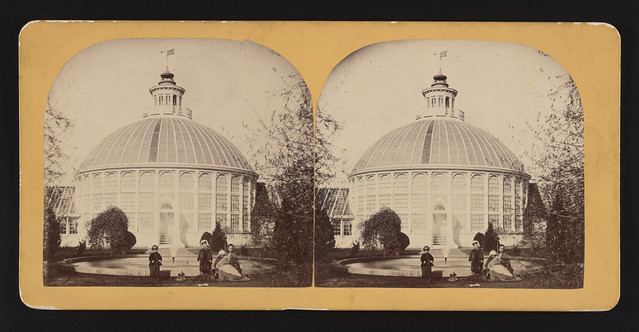The United States Botanic Garden (USBG) announces a year-long celebration of its 200th anniversary with the launch of a new exhibit. The Garden will continue the theme throughout the year with a program of exhibits, events, historic collaborations, plant collecting trips, and activities. The Garden invites visitors to be a part of the celebration and come engage with its distinctive plant collection, unique place in American history, and exploration of the Garden today and into the future.
Rooted in history, the Garden was a vision of George Washington, Thomas Jefferson, and James Madison. These Founding Fathers wished for the new capital city to have a botanic garden to demonstrate and promote the importance of plants to the young nation. Established by the U.S. Congress in 1820 and open to the public continuously since 1850, the U.S. Botanic Garden is the oldest continuously operating botanic garden in the United States.
"As we celebrate 200 years of history at the U.S. Botanic Garden, I am excited to explore new ways of helping people make meaningful connections to plants," said Saharah Moon Chapotin, executive director. "Whether it's to spend a quiet moment in our beautiful conservatory and gardens, to discover the tastes and textures of new food plants, or to learn about how plants contribute to a more sustainable planet, I want every visitor to the Garden to feel welcome here and to come away with a greater appreciation for the natural world.
"We want to continue the Garden's legacy of showcasing the wide variety of useful plants and to expand our work in keeping the planet healthy for the next generation. We look forward to welcoming visitors from diverse communities across the United States and around the world to join us in another 200 years of plant exploration, discovery, and celebration."
Bicentennial Exhibit
The major exhibition of the bicentennial is "The U.S. Botanic Garden at 200: Deeply Rooted, Branching Outward," on display Feb. 20 - Oct. 15, 2020 in the Conservatory's East and West Galleries. Visitors can explore historic images of the Garden, learn about plant exploration through the years, and discover how the Garden works day-to-day. Discover the original 3D images through historic 1800s stereoscope photos of the Garden, test your detective skills with botanical challenges in a set evoking a scientist's station in an 1800s exploration ship, and see what notes you can identify in a recreation of the infamous corpse flower smell. Visitors will also see a life-size bronze sculpture of a corpse flower created especially for the Garden.

